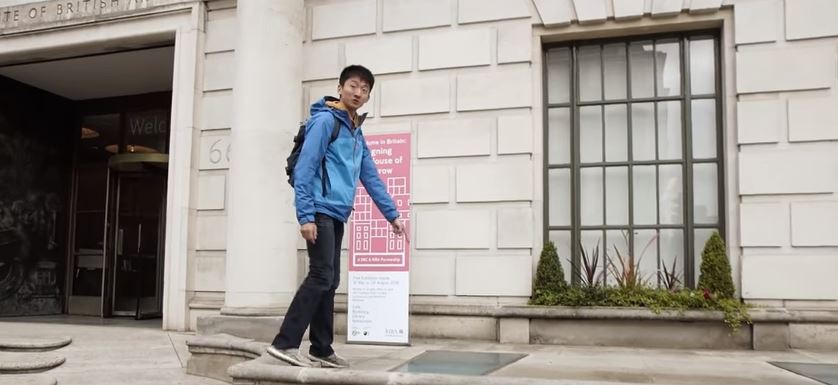By Vibrant Dot Staff
Ben, 24, recalled spending much of his adolescence at Portland Place, London, near the BBC’s headquarters and Royal Institute of British Architects.
Together with his mum, he endured some of harshest winters as they held silent vigil, everyday, round the clock, opposite the Embassy of China. Joined by volunteers comprising retirees, housewives and even university lecturers, they persisted – rain or shine.
Interesting, a counter that keeps track of the days they spent at the vigil station often triggers Ben’s recollection of his question to mum, on the day when she flipped the counter from ‘99’ to ‘100’ – “How long more would we have to sit here for?”
“Until the persecution ends, whenever that day is,” she said.
Today, some 15 years on, the pair is still sitting at the same spot, rain or shine.
The Persecution
An award-winning meditation and China’s top Qigong exercise in the early 90s, Falun Gong is practiced by millions across the globe and twice took centre stage at the acclaimed Oriental Health Expo in Beijing.
Today it is ironically outlawed by the same country that lauded its health benefits, and considered a taboo in a society intertwined with communist notions and fear.
While many felt this ancient meditation should have been free of state influence, by virtue of its nature, the Communist Party had a different interpretation. It saw the popular practice as a political threat, and an opportunity to strengthen its own political grip through its routine crackdown.
It did not help that states records put the number of Falun Gong practitioners in China to be over 80 million at the peak of its popularity.
In 1999, the regime orchestrated a nationwide campaign to eliminate Falun Gong in China, with state media lambasting the practice as ‘cult-like’ and ‘political’ in an attempt to turn public opinion against the practice.
But news of practitioners being tortured to disability and death in “black jails” or detention centers that hold no legal status, quickly surfaced, prompting an ensuing exposé of illegal organ transplants. The lucrative trade reportedly saw party officials, agents and middlemen profiting millions from the sales of organs from unknown and untraceable sources.
An investigative report in 2016 revealed that tens of thousands of organ transplant operations are secretly carried out in Chinese hospitals every year. Most of these organs – including kidneys, hearts and corneas – were traced to Falun Gong practitioners who were detained without trial, swiftly sentenced to death or forced to have their organs removed.
Though living in UK, Ben’s parents, also Falun Gong practitioners, felt they had to do something to help end such cruelty.
They’ll Always Be There
If you pass by Portland Place, you will see a small vigil station, outside of Royal Institute of British Architects, across the Embassy of China.
It was started 15 years ago by Falun Gong practitioners and volunteers in UK. The vigil runs 24/7 as practitioners peacefully meditate and share their plights with passersby.
This is where young Ben would spend much of his time after class.
“We felt like every meal was a picnic and every night was a camping trip… i would wake up at 7 in the tent, put on my school uniform, brush my teeth at Mcdonalds, take the London underground for half an hour, take the bus for another 20 mins and then go to school.”
He recalled his secondary school classmates asking: “Why, Ben your grades are so good? Is it because every day at home your parents whip you and make you do schoolwork?”
Little did they know that Ben would often study outside Royal Institute of British Architects while enduring the unforgiving chills.
“I used to do my homework here too,” said Ben, pointing to the ground light.

“Cause there’s a light here and when you’re cold you can sit here and it warmed you up.”
“Being in that environment, outside the Chinese Embassy, it really tempered my personality… and to be able to withstand a lot of hardships, I guess.”
Over the years, practitioners, including Ben, had collected a large number of petitions from concerned supporters.
“The traffic light is right there so everybody has to stop here to read our posters. And usually you don’t even have to say anything, they just read the message.”

“I just said ‘Sir. Would you like to sign our petition to stop the torture in China?’”
It’s another night in London. Ben is on his way to the vigil station.
He would be spending a night at the vigil, on that same street that evoked fond memories of his childhood.


















